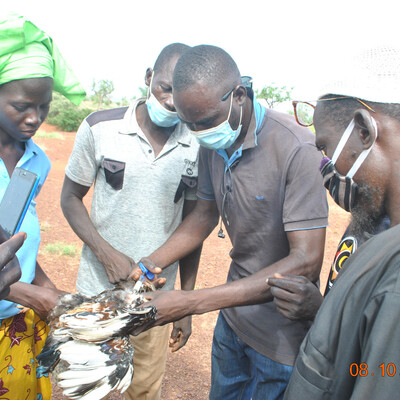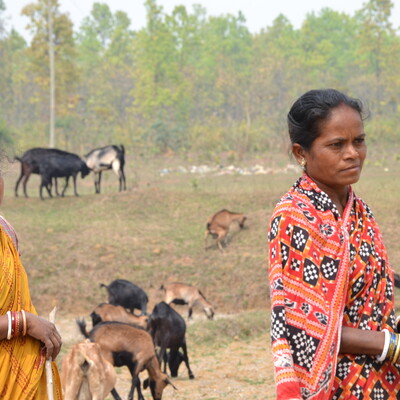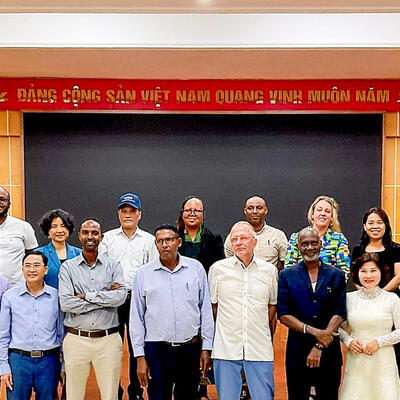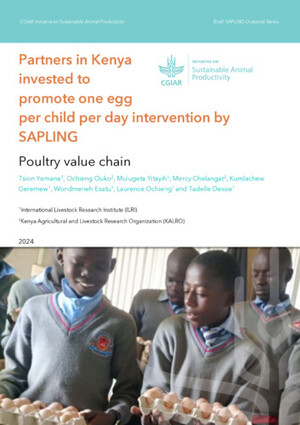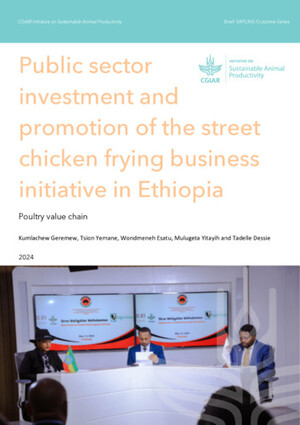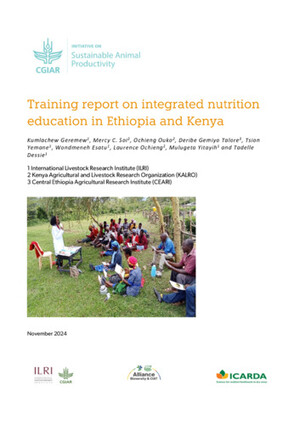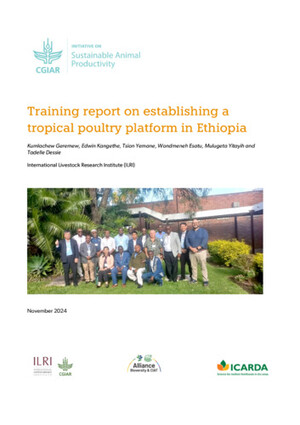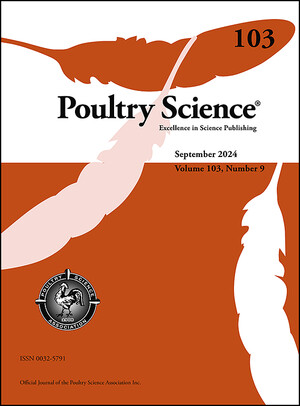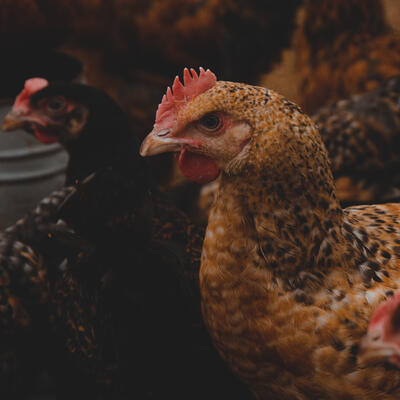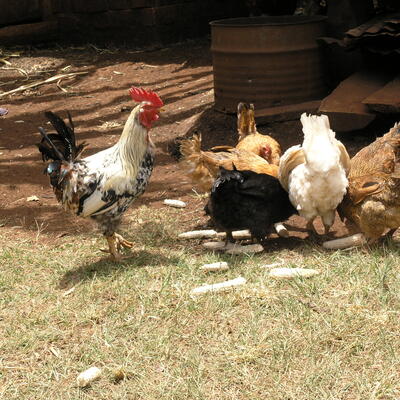
ACGG training for on-station chicken performance completed
The African Chicken Genetic Gains (ACGG) program’s training for on-station chicken performance testing has been completed in all three countries of operation -Ethiopia, Nigeria and Tanzania.
The training included PowerPoint presentations from the International Livestock Research Institute (ILRI) ACGG project team, as well as follow-up classroom discussions and visits to poultry research facilities to demonstrate how to measure chickens to identify traits of interest.

On-station demonstration at Obafemi Awolowo University (OAU) poultry farm in Nigeria
The classroom discussions covered a range of management topics, including:
- Day-old-chick management (incubation, candling, grading, identification, vaccination, weighing, transfer, measurement);
- Feeding;
- Housing;
- Health;
- Experimental design
- Data collection (types, frequency and modes of measurement), use of the Open Data Kit (ODK) system; and data management.
Training participants included enumerators from two stations in each of the three project countries; ACGG country teams; ACGG team members from ILRI (biometrician, animal breeder, project management officer, social economist, informatician, and data management specialist).
The practical sessions were useful for enumerators to build confidence and get hands-on experience of measuring experimental variables such as feed intake and refusal, growth, egg weight and productivity at individual and flock levels and use of the ODK for data capture and transfer to ILRI servers.
ACGG on-station chicken performance manuals were distributed to enumerators prior to the training to enable quick referencing. Trainees were also informed about online resources, such as the program wiki and website, and how to update their ODK tablets with new data sheets.
Fasil Getachew (above), research associate with ACGG in Ethiopia, who helped with the training, said ‘researchers and academics from ACGG country teams contributed tremendously to the refinement of the on-station experimental design and data management practices.’








